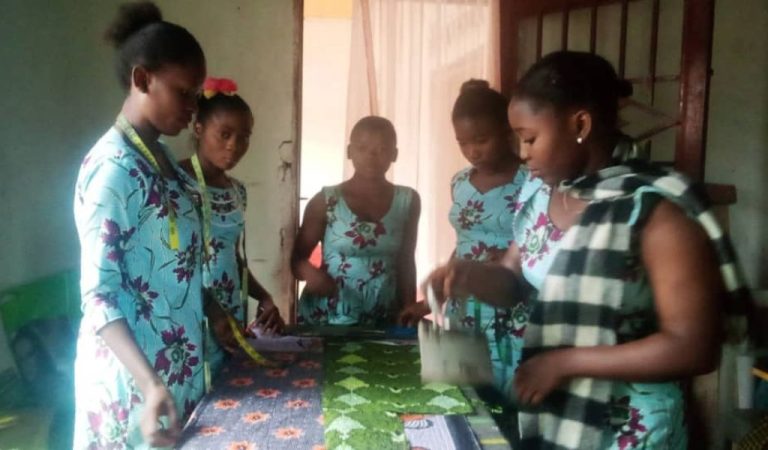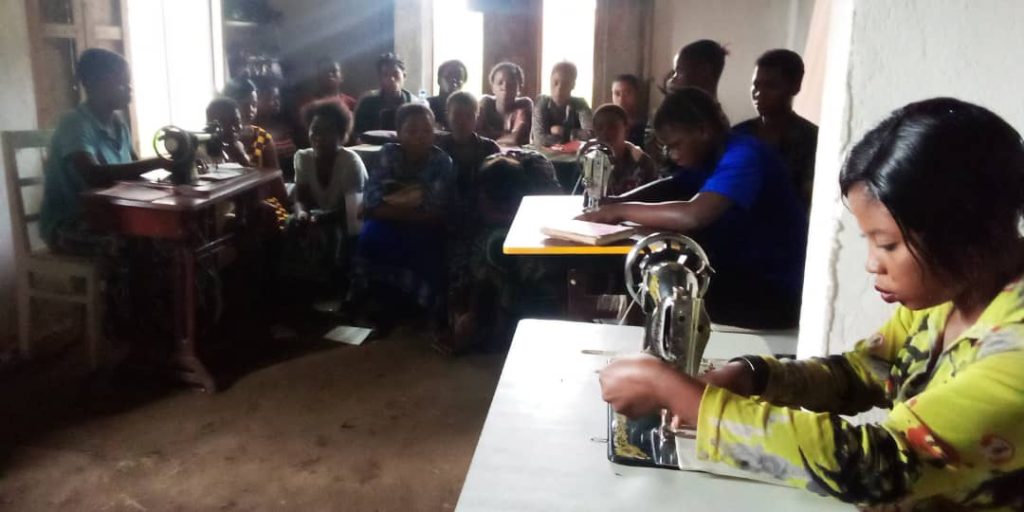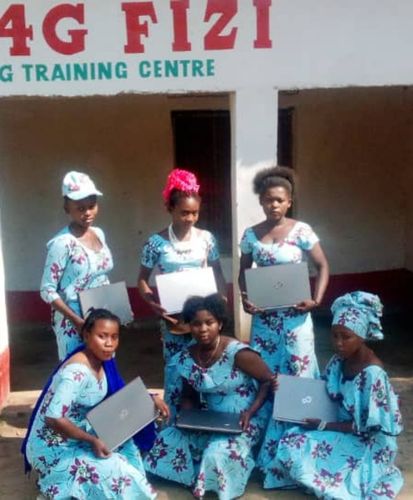What we do
Our organisation focuses on the training of young feminist activists!

These young feminist activists play a critical role in promoting women’s and children's rights in our region by bringing up new issues that feminists face today. Their strength, creativity and adaptability are vital to the sustainability of feminist organizing.
Young feminists are active and key constituencies of women’s movements around the country in impacting social change for the realization of women’s and children's rights and justice.
Our organisation focuses on the training of young feminist activists!

These young feminist activists play a critical role in promoting women’s and children's rights in our region by bringing up new issues that feminists face today. Their strength, creativity and adaptability are vital to the sustainability of feminist organizing.
Young feminists are active and key constituencies of women’s movements around the country in impacting social change for the realization of women’s and children's rights and justice.
Our Programs
- HIV/AIDS, Health and Sexual Reproductive Health Rights (SRHR)
- Gender-Based Violence (GBV) and Girls Empowerment
- Child Marriage, Young Women and Girls Rights
- Human Trafficking and Child Protection
We Build Schools
- Promotion of Rights of Youth with Disabilities
- Youth Governance and Accountability
- Congolese Youth for Agriculture (COYA Project)
- ART4Youth and Sports for Change
Our Strategies & Activities
1) Literacy: Solidarity G4G Fizi avails by now 4 literacy centers in Upper Kazimia, Lower Kazimia, and the neighboring villages of Kabogo, Kavumbwe, Nguma where girls are getting skills in writing, reading, and numeracy.
2) Support to girls in formal education and vocational training: With limited means, Solidarity G4G Fizi takes care of education for girls victims of sexual violence
We Consult
3) Peace education and conflict resolution: delivery of a series of peace-building workshops in the post-conflict period in DRC for reconciliation and healing.
4) Girl Child’s rights education: (planned activities) conducting meetings and seminars through literacy centers.
5) HIV/AIDS, Reproductive Health and Lifeskills Education (planned activities)
The above are the support strategies used by Solidarity G4G Fizi to facilitate achievement of the stated objectives in order to awake and raise the target’s conscience against illnesses of oppression and exploitation and spread up the development process, by using education as a tool for transformation.

Representation
Adolescent girls who benefit from our activities are represented in our organisation through feminism model. Our understanding of feminism is a model of activism founded on principles of participation, empowerment, collaboration, power-sharing, and feminist leadership.

In our work, the expression of our feminism is based on a model of activism founded on principles that young girls and female children who didn’t have a chance to education can equally participate, be empowered, collaborate, be involve in power-sharing, and feminist leadership.
Our Motto is “This Girl Can”. The practical example is that all our volunteer animators are girls who also sit on the management committee’s meetings to decide on the life of the organisation. Our members have a lot to offer and their involvement in important decision affecting the organisation is seen at all levels, from project conception to project delivery and evaluation. Service users are consulted and involved in all decision making processes regarding their support need. They are treated as partners and not consumers.
Representation
Adolescent girls who benefit from our activities are represented in our organisation through feminism model. Our understanding of feminism is a model of activism founded on principles of participation, empowerment, collaboration, power-sharing, and feminist leadership.
In our work, the expression of our feminism is based on a model of activism founded on principles that young girls and female children who didn’t have a chance to education can equally participate, be empowered, collaborate, be involve in power-sharing, and feminist leadership.

Our Motto is “This Girl Can”. The practical example is that all our volunteer animators are girls who also sit on the management committee’s meetings to decide on the life of the organization. Our members have a lot to offer and their involvement in important decision affecting the organisation is seen at all levels, from project conception to project delivery and evaluation. Service users are consulted and involved in all decision making processes regarding their support need. They are treated as partners and not consumers.
Root causes of problem
In our region, young feminists face impediments to their activism such as limited access to funding and support, lack of capacity-building opportunities, and a significant increase of attacks on human rights defenders. This creates a lack of visibility that makes it more difficult for their inclusion and effective participation within women’s rights movements. For women and girls in northeastern DR Cong, rape is a constant threat. Sexual violence has been used as a weapon of war to control, humiliate, and intimidate millions of women and girls. A weak functioning government in the area, a breakdown of social norms due to violence, a lack of respect for the rule of law, readily-available guns, and a destabilized society as a result of a struggle for the country’s national resources have allowed rape to become tragically endemic in the region. The perpetrators largely go unpunished. Armed groups that used rape as a weapon of war are not brought to justice, but instead given amnesty and integrated into the national army or let into general society, where they rape once more. Many women and girls are still experiencing sexual violence at the hands of ordinary civilians.
As a starting point, Solidarity G4G Fizi’s activists initiated demonstrations highlighting human rights abuse in the East of D R Congo where Government security forces and armed groups committed scores of human rights violations. The demonstrations were aimed at seeking justice for victims of sexual violence and human rights violations. As a result of these demonstrations, nine soldiers from the Congolese armed forces, including a lieutenant colonel, were convicted of crimes against humanity, notably rape, committed on 1 January 2017 in the town of Fizi, South Kivu. They were sentenced to jail in February 2018 in a rare example of perpetrators being promptly brought to justice.

How do we strengthen human rights of girls
We do regularly organize conferences for young women activists on human rights and civil liberties and other radical issues like severe and life-threatening conditions in prison and detention facilities; prolonged pretrial detention; arbitrary interference with privacy, family, and home; State Security Forces (SSF) members abusing, threatening, and obstructing journalists, human rights advocates, and the work of UN investigators; abuse of internally displaced persons (IDPs) by SSF and rebel and militia groups (RMG); widespread official corruption; SSF and RMG retention and recruitment of child soldiers; and use of forced civilian labor.
Societal discrimination and abuse, particularly against women, girl children, persons with disabilities, as well as lesbian, gay, bisexual, and transgender (LGBT) persons, and persons with albinism; enslavement of Pygmies; trafficking in persons; child labor; young girls’ sexual exploitation or at risk of sexual exploitation and lack of protection of sex workers’ rights.
How do we strengthen human rights of girls
We do regularly organize conferences for young women activists on human rights and civil liberties and other radical issues like severe and life-threatening conditions in prison and detention facilities; prolonged pretrial detention; arbitrary interference with privacy, family, and home; State Security Forces (SSF) members abusing, threatening, and obstructing journalists, human rights advocates, and the work of UN investigators; abuse of internally displaced persons (IDPs) by SSF and rebel and militia groups (RMG); widespread official corruption; SSF and RMG retention and recruitment of child soldiers; and use of forced civilian labor.

Societal discrimination and abuse, particularly against women, girl children, persons with disabilities, as well as lesbian, gay, bisexual, and transgender (LGBT) persons, and persons with albinism; enslavement of Pygmies; trafficking in persons; child labor; young girls’ sexual exploitation or at risk of sexual exploitation and lack of protection of sex workers’ rights.
